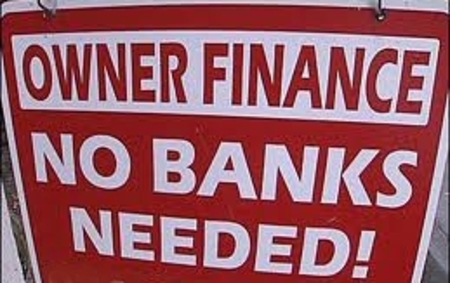Money for starting a business is available for the entrepreneur who can prove that the money will be well spent.
This requirement eliminates having to look for grants for starting a business since, by definition, a grant is a gift and it matters not to the grantor how you spend the money as far as getting a financial return for it is concerned. However, to get money to start a business you must still think like a professional.
If you’re starting your own business, even if you simply want work from home business ideas at this point because you’re not yet ready to launch your own operation anywhere else, then you still have to think like a professional.
When it comes to thinking about money for starting a business, the professional thinks like an investor.
What kind of thinking is that?
The investor thinks about returns. You must make a return on your investment.
No Return? No Money Starting A Business. Period.
There is no point to starting a business operation if you will not yield a positive result from it. Even a lesson learned is a better result than losing all the business money and not coming to know why that happened. But worse than losing money is losing time, since time is a resource that you cannot replenish.
The wise investor, therefore, always thinks about the return on the investment before putting the funds on the line.
Again, there is no point in making an investment in a business, there is no point in running that business operation, unless the business yields a return from running that investment through the operation.
Now you might think that you’ll need funds just to set up said operation. Think again.
Money for starting a business may take various forms. One could be funds for feeding an existing though fledgling operation. The other could be funds for simply starting the operation itself from scratch.
And if we assume that you have no funds for either case, then how do you get the money for starting a business of your own?
This is a very typical scenario and maybe your own situation right now.
Grants For Starting A Business When You’re Broke
It may be so tempting to look for grants for starting a business, because you know inherently that there is a serious challenge before you in convincing others to give you their money to help you launch your own business.
But is it the asking that is problematic?
The problem with asking for money isn’t in you saying “Please, give me the money”. The problem is in you having to come back later with that money and then some extra funds to pay off the lender who gave you the money to begin with. You know that.
You know also that the one giving you the money for starting a business expects that money back with interest. And I don’t mean that he’s merely interested in getting his money back. The lender wants a piece of the action. Why?
That person took a risk in giving you his funds. You could screw things up real bad and he’d be out those funds and what he could have done with them instead. And the loss will be his fault for trusting you. You know this too.
So, you know that you’re a risk in the eyes of the lender and, rather than persuade that person to believe that you won’t lose the money, you’d prefer not to borrow.
That’s why you’d rather seek for grants for starting a business, right? Except that some grants, just like loans, come with strings attached. So, technically speaking, they’re not grants.
Briefly, when we speak of grants for starting a business, we’re speaking of government grants.
 In the USA the federal government rarely offers grants to individuals. You must be a fictitious entity, such as a corporation, a trust, an institution or organization to receive a grant.
In the USA the federal government rarely offers grants to individuals. You must be a fictitious entity, such as a corporation, a trust, an institution or organization to receive a grant.
It will take a staff to apply for these competitive grants because of all the paperwork required. Plus there are obligations that the grantor will expect from the recipient of the grant.
The organization must work for the common welfare. That word is defined by statute not by the market.
The granting federal agency that received the application and awarded the grant will audit the recipient for the duration of the funding period to ensure that the public funds have been spent in accordance with regulations. Else the recipient will be financially penalized or imprisoned.
So, who do you think owns the operation in this case? You?
There are no free lunches. Government grants are not free.
Still, if you’re interested in learning more about developing a grant proposal and learning about the types of assistance available for anyone looking for government grants for starting a business, then visit the Catalog of Federal Domestic Assistance.
You could also look for grants for starting a business at the state or local government level through state and local economic development agencies, that encourage entrepreneurs to start small businesses.
With state and local government budget cuts, however, funding dries up. Money for starting a business with government help is not a slam dunk.
Therefore, keep thinking of the challenge that you must overcome in looking for money for starting a business through the private sector.
Money For Starting A Business When You’re Serious
Who will take a risk on you? That’s the first question to ask yourself if you’re looking for money to start a business. Think of some of those work-from-home business ideas that have crossed your mind recently. Has any of them included an idea for how you will convince a money lender that you are a good risk?
When you look for capital to borrow you must understand very carefully what you’re really trying to do, because your explanation to the lender will come from this understanding that you gain about your own motives.
If you have a few savings, no matter how small they are, and this is all the money for starting a business that you have, then it’s easy to think that these savings will yield more return if you combine them with borrowed capital.
Borrowed capital increases the potential return of your savings.
If you expect to get 20 cents back for every dollar of savings that you invest in your business, then it stands to reason that you could get $1 back for every $5 of capital that you invested in the same business.
That means that borrowing $4 to add to your $1 of savings will increase your return by 500%. Twenty cents become one dollar. That is called leverage.
How do you do this?
How About By Debt Financing?
You do it by using the borrowed money to buy assets for your company. Assets are anything you purchase that will produce benefits for your business. In the $4 example, you spent that borrowed money in assets that produced more benefit to you than $1 alone could do.
But these are borrowed funds. When you owe the money for starting a business, you don’t own a business. You own a debt. This is why this type of business financing is called debt financing. And who decides how the money should be spent?
If you answered that you decide, that’s the wrong answer. Debt money for starting a business also comes with strings attached. The reason why a lender or investor requires of you a business plan is because that’s how this individual decides what to permit you to spend his money on. You are a steward of this person or lending company’s money for as long as you owe the funds.
Lenders may not get involved literally with the daily going-ons in your business, and you may feel you’re in control. But they would have decided well ahead what to empower you to do, by giving you all or only a fraction of what you claim to have needed to run the business your way.
When you have more debt than equity, then you’re known in accounting circles as being highly leveraged, which is a fancy term for being in hock. And what have you pawned?
You’ve pawned your credibility and your personal assets, if you’re not a fictitious organization with some legal protection for what you’re liable to pay back.
In short, with debt financing you’ve pawned your financial future.
While it’s true that most organizations use debt to finance their operations because leverage magnifies gains, it would be foolhardy not to consider the reverse, which is that leverage also magnifies the losses if an investment moves against you, because you will be in hock for the interest payments as well as the balance of your loan.
A failure to pay either will destroy your further ability to get credit (credibility) and the value of ownership in your business (bankruptcy).
So, is debt financing the best way to get money for starting a business?
Debt financing makes sense if you believe that your business will meet the following conditions:
- The lender will give you the amount of funds that you believe is truly necessary for your operation to yield the required cash both to pay back the loan and also to keep a profit that will enable the business to continue to operate and grow.
- The operation will be able to generate the right volume of business because of the loan to yield a stream of cash large enough to start loan repayment on time without impacting business growth.
- The amount of debt that your business is taking on will not convert you into a highly leverage operation that is risky and worthy of being charged higher interest rates.
- The funds that you receive will not go into the purchase of fixed assets, such as equipment or real estate, that cannot be converted into cash quickly, but instead will go into materials whose costs you can quickly recover through the immediate purchases made by your customers.
- Your customers will make timely and increasing purchases from you, and you have evidence that supports this habit in them.
Debt financing is a better option for mature businesses that can depend on more predictable behavior from their customers and who are already well accustomed to a steady stream of cash.
For small, young companies the best option when seeking for money for starting a business is to bootstrap their operations. It’s part of starting up small.
Go here for some ideas on smart business financing but come back for some quick money making ideas to launch a business that you can bootstrap.











